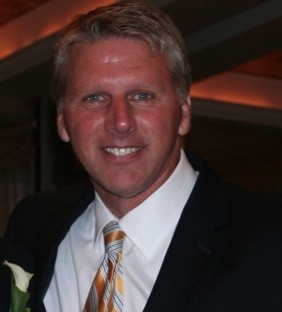Tim Cahill: The Olympics Are Over… Now What?
Tuesday, August 14, 2012

Tim Cahill, GoLocalWorcester MINDSETTER™
I have too admit that I did stay up too late one night to watch Massachusetts' own Aly Raisman win gold on the floor exercise on the final night of the competition. These young women were phenomenal in so many ways. But I cannot help but vent over the way NBC milked every last commercial out of every possible event. They dragged out the decathlon so much that we didn't get to see the final event until almost midnight.
That is what happens when television completely takes over an event. Everything is built around selling yogurt, back to school clothes and cars (if I ever have to listen to Spandau Ballet again I will cut my ears off!). It has become all about the "brand" that is presented to the public. We've witnessed it in the Olympics. We are witnessing it with the NFL. And it has completely destroyed what used to be exciting and newsworthy about the next big televised event: political conventions.
National political conventions used to choose candidates and develop party platforms. They once contained extensive floor fights, back-room deals and more real life drama in four days than the Olympics would give us in two weeks. However, since the networks started televising the conventions all the drama and excitement has been drained out of the event so that now it represents nothing more than a coronation.
What would television do with a convention like the one that took place in 1880. The three early favorites included John Sherman, James G. Blaine and former president, Ulysses S. Grant, seeking an unprecedented third term. After the first thirty ballots, the vote totals of the leading contenders were within five votes of where they were after the first ballot.
New York Senator Roscoe Conkling attempted to get a rule passed that all state delegates must vote unanimously for only one candidate. It was here that Ohio Congressman James Garfield made an impassioned speech against the Conklin move and instantly became a dark-horse candidate for the nomination.
It mattered little to the delegates that Garfield stated that he did not want to be president and had in fact already pledged his vote to Sherman. The voting continued with Garfield rising from the original seventeen delegates who voted for him to become Grant's main rival. Eventually, after two days and thirty-six ballots, Garfield emerged as the Republican party's standard bearer, garnering 399 votes, 93 more than the former two-term president. Garfield went on to win a close race for president in November.
It is not that television would not love to broadcast such a dramatic convention. Can you imagine the narrative that NBC could present between the two factions of the party if they were referred to today as they were in 1880: the Stalwarts versus the Half-Breeds. I can see Matt Lauer and Bob Costas describing this battle between warring tribes.
The problem is that neither party wants the public to ever see what used to take place at these sausage-making political events. So they sold-out the real drama for the "reality TV" version we see every four years. To put on their best face to the viewing public and to make the conventions nothing more than a four-day-long commercial for the party and their nominee, they have stripped out any and all tension and drama.
All nomination fights now end well before the conventions and any and all disagreements are settled off the floor. The parties learned from the 1972 Democratic convention and the 1976 Republican convention that a protracted public airing of "dirty laundry" between the various factions will most surely lead to electoral defeat in November.
That may or may not be the case, but nonetheless it makes for a boring experience on television. In fact it has become so mundane and predictable that nobody even watches anymore. After all, some of us are as interested in seeing and learning how Mitt Romney and Barack Obama and their respective teams handle pressure as it unfolds live. It's like watching Michael Phelps and Usain Bolt win gold medals on television after you have already seen the results on twitter.
Related Articles
- Tim Cahill: A Tale of Two Massachusetts Tech Companies
- Tim Cahill: America’s Free Enterprise System is Under Attack
- Tim Cahill: Brown vs Warren and The Great Tax Reveal
- Tim Cahill: Curt Schilling and the Sins of Success
- Tim Cahill: The Brown-Warren Race Hasn’t Gotten Ugly… Yet
- Tim Cahill: The Brown-Warren Race is Tied at Halftime
- Tim Cahill: ‘Etch-A-Sketch’ Political Moments in History
- Tim Cahill: ‘Who Would Have Thought’ Moments




Follow us on Pinterest Google + Facebook Twitter See It Read It